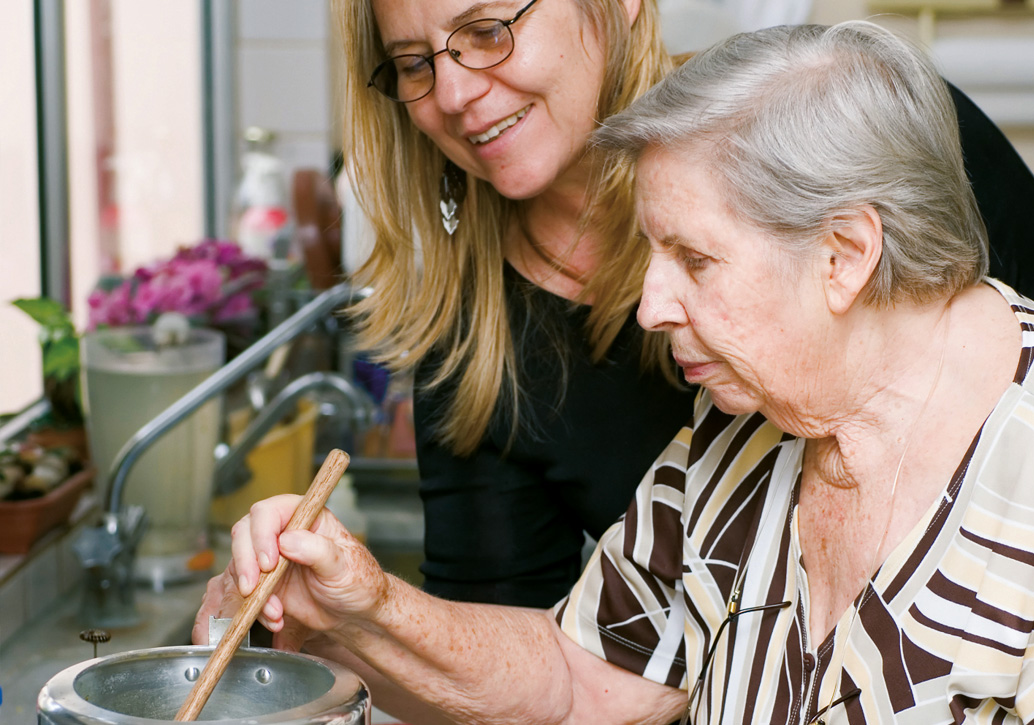Healthcare professionals answer questions about caregiving, long-term care and seniors’ health
Q) My mother refuses to use her walker, and I’m worried she’ll fall. Any tips to encourage her to use it?
Explain to your mother that the walker is for her safety. Giving her the device will provide her with assistance and assurance. Let her know what could potentially occur if she loses her balance and has a fall. Find out why she refuses to use it. It would be a good idea to ensure there are no unsecured mats or rugs in the home; the walker could get caught on them.
Q) My mother needs help with her housekeeping and cooking now that she’s frailer. What will the provincial health care cover?
Families can contact their family doctor and get a referral to their local health authority. A nurse or case manager can then assess the patient and determine what support is necessary. Provincial health care systems will not provide coverage just for housekeeping and cooking; however, depending on the age and circumstances of the older adult, Department of Veterans Affairs(DVA) may cover a certain amount for housekeeping and care.
Q) Can I get paid to care for a family member, or do we need to hire someone?
You can make private arrangements within your family just as you would for child care. You can also apply for Compassionate Care Benefits through Service Canada at www.servicecanada.gc.ca. If a family member is providing care, adequate arrangements need to be made to give them time off and/or respite. This is crucial: Caregiving can be challenging, causing caregivers to end up getting burned out or ill themselves.
Q) How can I tell if my dad is eating properly? He seems to be getting less interested by the day.
One of the best ways to tell if your dad is eating properly is by checking his fridge. Have you been making sure that he has groceries? And are they getting eaten? Does your dad live alone? Eating is a very social activity for a lot of people, and he may not feel like eating alone.
Try and eat with him whenever you can, or arrange company for meal times. When was his last doctor’s visit? Was he weighed there, and was it a loss from a previous visit? If he is eating, but still appears to be losing weight, the doctor may need to do some blood tests to determine if there is something physically wrong with him.
Q) Recently my 75 year-old uncle lost his wife, and his youngest son went off to do graduate studies. He’s now alone. I’m worried that he’s depressed. What can I do?
Speak to your uncle and try to get him into activities he used to do, including hobbies or groups that may interest him. Community care centres may have day groups where he could meet other individuals in a similar situation. It also may be a good idea to take him to see a family doctor; he may need counselling or medication to assist him through this challenging time.
Q) I’ll be taking care of mom’s bills and care from here on in. How often do you suggest we pay for a personal support worker and how much?
How often you have a personal support worker with your mom depends on her health. If she requires a lot of assistance, including bathing and meal prep, and she lives alone, she’ll require more assistance. If she just requires light housekeeping and/or some companionship, it’s a different story. Check with the provincial home care body to determine if she is eligible for government funding for some hours of care. If you want additional hours, you or she will be expected to pay privately. Pay scale ranges from $14 to $16 per hour for a private support worker to $20 to $25 per hour for someone from an accredited agency. Most agencies will do a free in-home assessment to assist you in determining your mother’s needs and will help put together a care plan.













